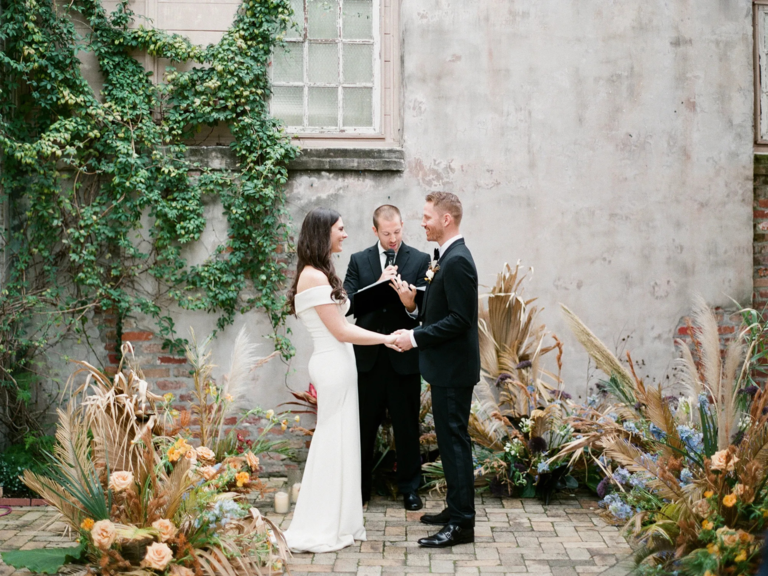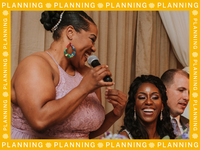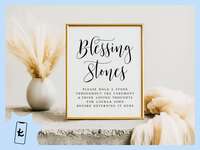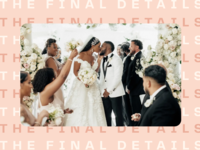This Is the Ultimate Wedding Ceremony Script for Your Nuptials
It's easy to focus on the vow portion of your ceremony and forget about the larger piece they're a part of: the wedding ceremony script itself. No pressure, but wedding ceremony scripts form the foundation for your nuptials. They set the tone and atmosphere, create meaning, reflect your values as a couple, and help you connect with your guests. And in some cultures and religions, they're a key part of reflecting the connection between your faith and relationship.
Feel like you have writer's block? Find an officiant to help make your ceremony script planning that much easier on The Knot Vendor Marketplace. Just enter your location, then filter by ceremony type and religious affiliations when finding a wedding officiant near you. You can also use our sample wedding ceremony scripts below to create a marriage script that feels genuine to both of you.
Specific Wedding Ceremony Scripts: Christian Wedding Ceremony | LGBTQIA+ Ceremony Scripts | Non-Religious Wedding Ceremony Script
1. Identify Your Needs
There are several aspects to consider before crafting your wedding script, from how you want it to sound to any additions you'd like to include for religious or cultural purposes. That will help dictate whether you want a modern wedding ceremony script or a traditional wedding ceremony script. Loren Petrowski, officiant of and owner of Marry You in Hawaii in Honolulu, advises asking yourself these key questions:
- Length: How long do you want the ceremony to be? Are there venue time restrictions?
- Vows: Will you have your own vows or traditional vows?
- Tone: Are you looking for a lighthearted or more serious ceremony?
- Other participants: Will you have anyone else participate in the ceremony, such as a reading? If so, how many people? How will you select them?
- Privacy: Is there anything you'd like to say but not in front of all your family and friends?
- Religion: Will you be incorporating any meaningful religious or cultural elements?
The last question is a big one since there are so many types of wedding ceremonies. The answer may dictate other aspects of your ceremony, such as the script's length or tone, the type of wedding officiants you'll need, your wedding ceremony order and your wedding ceremony seating. While ceremonies are typically 15–30 minutes, Catholic and Indian weddings have a more structured outline for longer ceremonies. And the longer the ceremony, or the more cultural or religious additions you have, the more you'll need to customize your ceremony script.
2. Welcoming Remarks
Following the wedding processional, the officiant's welcoming remarks should set the tone for the rest of the ceremony, according to officiant Tanya Pushkine of The Vow Whisperer in NYC. A friend or family member might have a personal story to tell, she explains, whereas a professional officiant would focus on making guests feel welcome while telling the couple's love story with heartfelt words. In a Catholic or Christian wedding, this portion would likely include a welcoming prayer.
Fill-in-the-blank template: Welcome, everyone. Today, we are celebrating the love of ___ and ___. Together, they have found a confidant and true partner to share their life with. Whether you've traveled from far and near, they're honored to share this next chapter with you.
3. Remembrances (Optional)
Do you have loved ones who are no longer with you whom you'd like to acknowledge? In a simple wedding ceremony script, you can have your officiant briefly mention their names and even their relationship to you, along with any other additional remarks about them.
Fill-in-the-blank template: Before we begin, we'd like to take a moment to remember those who are no longer here with us: ___ and ___. Their love helped mold the two people standing here before you, and we feel that love in our memories and in our hearts today.
4. Readings or Personal Stories (Optional)
If there's a reading that feels close to your hearts, your script for your wedding should introduce it and the person you want to read it aloud. Maybe it's a passage from a religious scripture that resonates with your idea of marriage, an excerpt from a book you both love, or prose you feel embodies your feelings for one another—take a look at these best wedding readings for a bit of inspo. You can also ask a close friend or family member to share a personal story about the two of you for a more unique wedding ceremony script.
"Choose someone who will be super comfortable speaking in public, and choose a reading that resonates with you both," Pushkine advises. "Perhaps a family member who you are both close to or even the officiant can do this part."
In some religions, this is a required part of the ceremony. Consider the Liturgy of the Word, a central part of Mass incorporated in Catholic wedding ceremonies. This requires multiple readings, including those from both the Old and New Testaments, as well as a sung or recited Psalm.
Fill-in-the-blank template: Sometimes, it's hard to put love into words. ____ will be sharing an excerpt from ____, which captures how ____ and ____ feel about one another.
5. Officiant's Address
In a basic wedding ceremony script, this is where the officiant can briefly dive into your story as a couple or give some expressive thoughts on love and marriage. This can be as deep as you want it to be, pulling from spiritual, philosophical or religious themes, or funny and lighthearted. Either way, it should feel heartfelt.


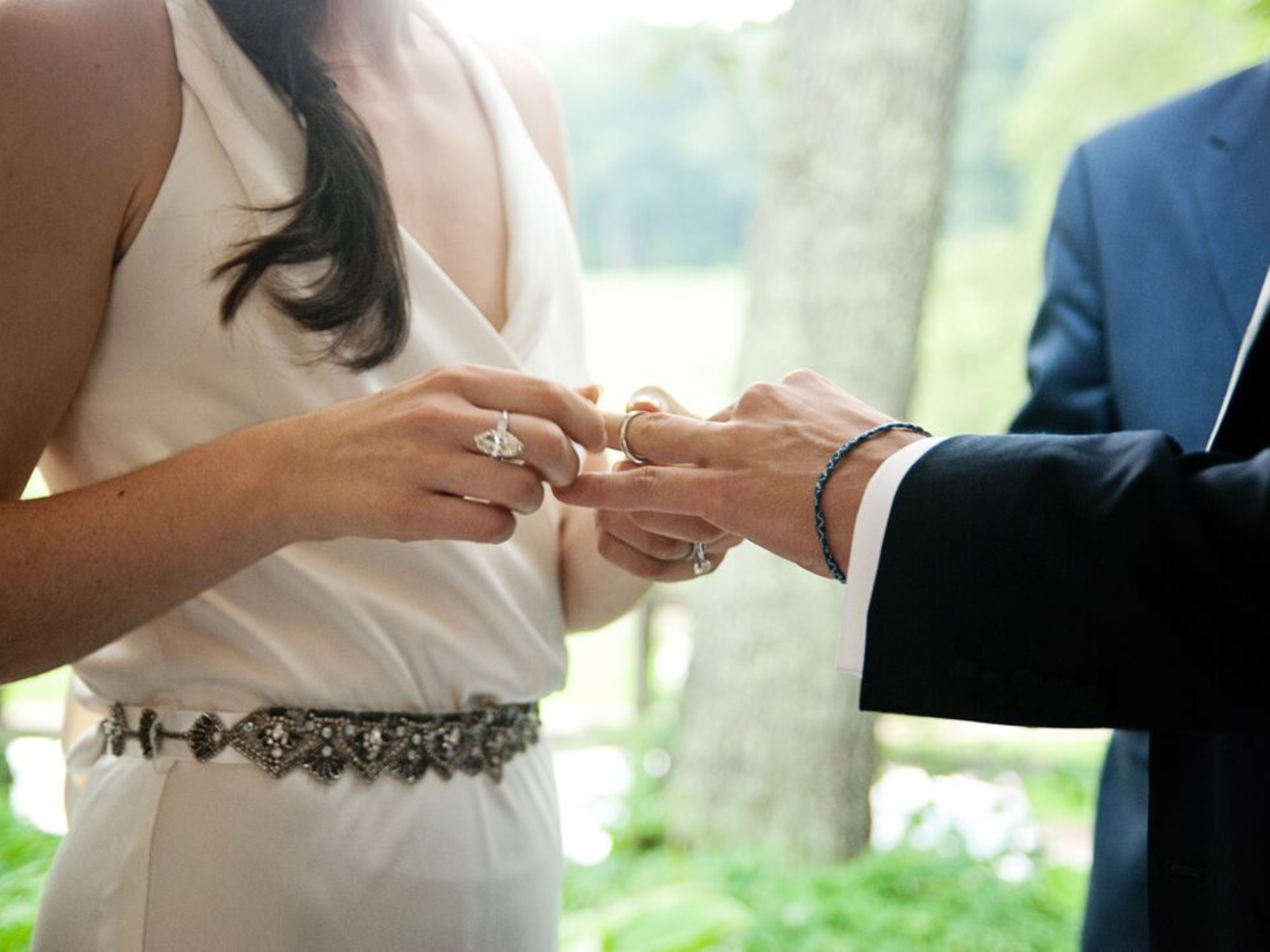
Fill-in-the-blank template: From [insert shared memory] to [insert shared memory], ___ and ___ have built a partnership based on trust, laughter and adventure. Love is kind, it is stable, it is steady. It is more than a feeling—it's choosing someone again and again. Our newlyweds are making that promise for a lifetime, throughout seasons of change and growth and in ways both big and small.
6. Vows
Many contemporary wedding scripts include personal vows. "This is the part guests love the most, and it's actually the part of the wedding the couple remembers more than any other," Pushkine says, adding that vows should be delivered with emotion or expression. For some inspiration, check out our wedding vow template or these wedding vows from real couples.
If you don't want to share personal vows publicly, you can opt for traditional vows during the ceremony and "share private vows on your own or even have a completely private ceremony before the one with family and friends," Petrowski adds.
Here are a few wedding ceremony script examples for the vow portion, depending on which route you take.
Fill-in-the-blank template for traditional vows: This brings us to the heart of the ceremony: the vows. ___ and ___ will declare their promises and intentions for one another to share the strength and sincerity of their love.
Fill-in-the-blank template for personal vows: This brings us to the heart of the ceremony: the vows. ___ and ___ have both put their hearts on paper, sharing what love looks like through their eyes.
7. Declaration of Intent
In a typical wedding ceremony script, "this is the part that is actually the only legal portion necessary," Pushkine says. "The officiant will ask you if you intend to marry the person standing next to you. There are beautiful ways to do this."
Fill-in-the-blank template: ___, do you promise to choose ___ every day as your partner during the highs and lows of life, to be their safe space and their teammate with love and respect?
8. Ring Exchange
"There is meaning to the rings you are about to exchange," Pushkine says. "Speaking to this for a minute is also a beautiful way to express the meaning behind the metal." Nondenominational weddings can keep their ring exchange wording brief for a short and sweet wedding ceremony script, but this will be a more elaborate moment if you're having a culturally or religiously significant wedding. For example, in a Jewish ceremony, the rabbi will lead the couple in traditional blessings over wine before they exchange rings—a part of the ceremony known as Kiddushin.
Fill-in-the-blank template: These rings are a reflection of the words you just shared, your endless love and your journey together.
9. Unity Ceremony (Optional)
Unity ceremonies are symbolic rituals that represent the joining of two people. It's a meaningful way to represent your commitment to one another, but it's not required in a script for a wedding ceremony unless your religion or culture calls for it or something similar.
Jewish ceremonies have the Seven Blessings, a series of blessings recited over the couple to celebrate their union. And Pushkine says Indian weddings (which differ by religion and region) also typically include Mangal Phera, in which a couple makes three circles around the sacred fire to symbolize their vows and shared journey, and Sindoor and Mangalsutra, when the groom applies a red powder to the bride's hair part and ties a sacred necklace around her neck. Some Catholic ceremonies will also feature a Liturgy of the Eucharist, which includes several steps such as the preparation of the gifts (where the bride and groom bring the bread and wine), communion, blessing and prayer.
Pushkine says that a beautiful nondenominational gesture can be a unity candle, which is often done by the two mothers of the couple, or a sand ceremony—but there are plenty of unity ceremony ideas if neither of those appeals to you. "The main thing to do is find a ritual that truly means something to both of you," she says.
When incorporating this into your ceremony script, make sure that the officiant explains the unity ritual so that guests will better understand its meaning.
Fill-in-the-blank template: At this time, ___ and ___ will _____ to symbolize the melding of their lives into a marriage that will flourish with time and care. [insert brief explanation of unity ceremony if needed here]
10. Pronouncement and Kiss
Now, the officiant can declare you both married and prompt the big kiss before the recessional begins. In a brief wedding ceremony script, this will typically be a simple statement. But a rabbi will need to first declare the breaking of the glass to mark the conclusion of a Jewish ceremony, and a priest will include a final blessing or prayer in a Catholic or Christian ceremony.
Fill-in-the-blank template: Now is the moment we've all been waiting for. With all the love and great honor, I now pronounce you married. You may now kiss your chosen partner in life.
